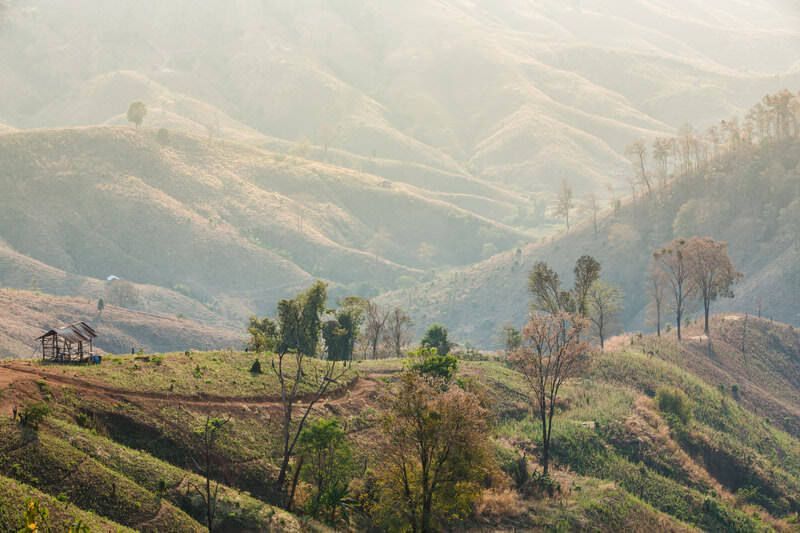© Wichits | Dreamstime.com - Deforestation
Deforestation is the conversion of forested areas to non-forest land use such as arable land, urban use, logged area or wasteland.
Historically, this meant conversion to grassland or to its artificial counterpart, grainfields; however, the Industrial Revolution added urbanization.
Generally this removal or destruction of significant areas of forest cover has resulted in a degraded environment with reduced biodiversity.
In developing countries, massive deforestation is ongoing and is shaping climate and geography. Deforestation results from removal of trees without sufficient reforestation; however, even with reforestation, significant biodiversity loss may occur.
There are many causes, ranging from slow forest degradation to sudden and catastrophic wildfires. Deforestation alters the hydrologic cycle, alterring the amount of water in the soil and groundwater and the moisture in the atmosphere.
Forests support considerable biodiversity, providing valuable habitat for wildlife; moreover, forests foster medicinal conservation and the recharge of aquifers.

← Go back Next page →
